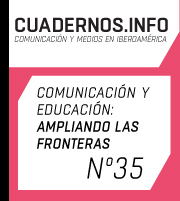La aplicación de la cláusula de conciencia de los periodistas en España. Problemas y limitaciones de un modelo incompleto
DOI:
https://doi.org/10.7764/cdi.35.548Palabras clave:
cláusula de conciencia, objeción de conciencia, estatutos de redacción, convenios colectivos, códigos deontológicos, ética periodísticaResumen
El Informe Leveson sobre la prensa británica, publicado tras el escándalo de las escuchas telefónicas que culminó con el cierre del diario News of the World y la detención de decenas de periodistas, incluye entre sus recomendaciones la incorporación de una cláusula de conciencia en los contratos de los periodistas con sus empresas, como mecanismo de protección frente a órdenes que vayan contra la ética profesional. España es el primer país europeo que constitucionalizó este derecho al incluirlo en la Constitución de 1978 y desarrollarlo en 1997 mediante una Ley Orgánica. Sin embargo, transcurridos más de treinta años desde su reconocimiento constitucional, el balance que cabe hacer es negativo. Los periodistas españoles se sienten sometidos a presiones cada vez mayores de sus empresas, sin que el derecho a la cláusula de conciencia represente una solución real y eficaz. En el artículo se exploran algunas causas que explican esta limitada eficacia.















